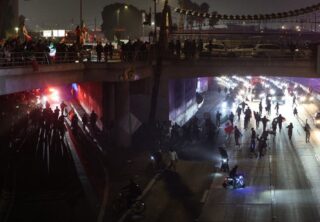MANILA, Philippines–The parents’ association of Jose Abad Santos Memorial School (JASMS), the basic education arm of Philippine Women’s University, has backed the Benitez family’s opposition to the takeover attempt by STI Holdings while voicing stiff opposition to an alleged “commercialization” of its campus in Quezon City.
In a recent statement, JASMS Parents Association (JPA) insisted that the current row between PWU and STI had been precipitated by STI group’s attempt to push for the commercialization of the JASMS Quezon City, which it lamented would radically reduce the size of educational space to 20 percent of its current size.
JPA claimed to be in possession of copies of the minutes of the PWU board which allegedly showed that businessman Eusebio Tanco—the principal stockholder of STI—was the proponent of the commercialization project.
The association said this was a “threat” to the welfare of the children who, based on the blueprint, would be relegated to a nine-story building with a playground on top of a mall.
The group believes it would put the children—especially those with special needs—at risk in the middle of construction site.
The association cited a memorandum of agreement between PWU and Ayala Land Inc. signed by STI president Monico Jacob.
“When we sought a dialogue with the PWU board, the lead person conversing and negotiating with us was Mr. Tanco himself and Atty. Jacob. There were members of the Benitez family present in the said meeting and we found them supportive of our cause,” the association said.
“It was very clear to the JPA board that the founding family understood the issues and our concerns. They tried to help us reason with the representatives of the STI and Tanco groups,” JPA said.
JPA said it was also clear that STI only wanted to use the land for condominiums and a mall.
“The idea of the commercialization of education by way of real estate development is a great detriment to the students and is a great evil in our society,” JPA said.
If pursued, it warned that the school would have the smallest fraction of the space which for the last 60 years has been designated for educational purpose.
“It would be very sad to see that, in this location where the first progressive educational institution in the Philippines was historically founded and nurtured by Filipinos since the early 1950s and continues to thrive, would just be wiped out,” the association said.–Doris C. Dumlao


